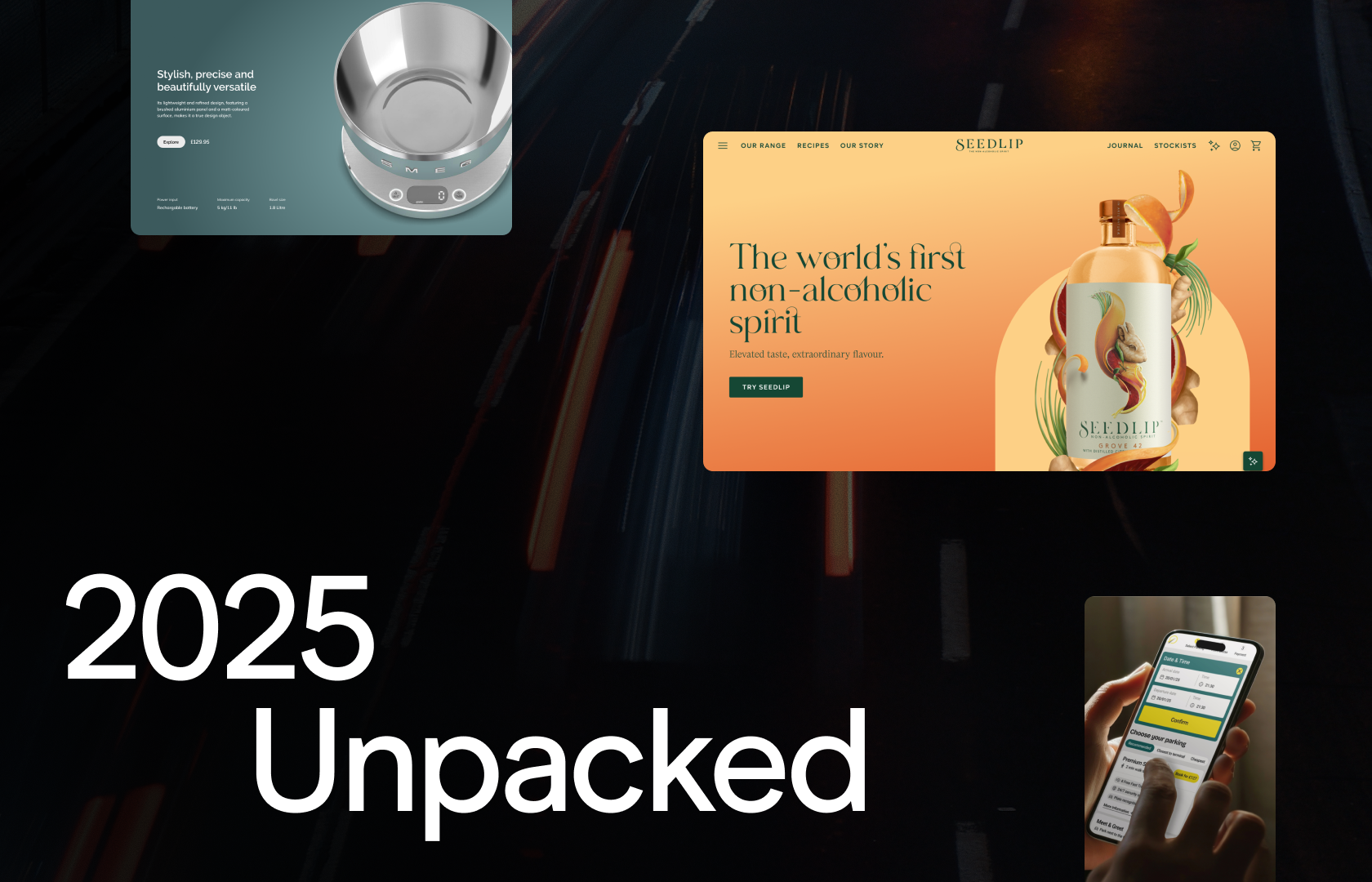At UNRVLD we recently hosted a roundtable discussion with two of the leading waste management service providers from the UK and USA, whose considerations around environmental impact are central to their business models. We discussed the role of digital in affecting change, both to accelerate business performance and how this positively intersects with their sustainability strategies.
We were joined by Naomi West, Head of Digital Marketing at Biffa, the leading provider of B2B waste management services in the UK and a long standing UNRVLD client. And Shalini Desai, Digital Customer Experience Director at Republic Services, one of the largest providers of residential and business waste services in the United States.
Starting a transformation journey
Often the hardest part in any change program is getting things moving, the ambition may be there but the reality of capacity and working within legacy constraints can slow things down. We started our discussion with how things looked for Biffa at the beginning of their recent digital transformation journey, asking Naomi about the issues facing the business when getting their sector-first e-commerce offering off the ground.
“The waste management sector in the UK probably hasn’t been historically innovative when it comes to digital, when I joined the company 4 years ago, telesales and field sales were still the primary customer acquisition channels"
“Within the sector you have huge amounts of legislative requirements to deal with and lots of very technical language that doesn’t resonate with customers. Also, it’s a service that’s a requirement but one that’s not the most interesting to engage with, so there's a challenge in how to talk to customers in a way that engages them”
The first step in Biffa’s transformation journey working with UNRVLD , was to tackle these issues head on, and concentrate efforts on what could be achieved for the customer. After a focused business, technology and customer research piece, we designed user experience prototypes that focused on what was immediately possible, and how this could translate into a better experience for customers.
These prototypes, tested and validated with customers, helped visualise the project goal and create alignment across stakeholders. Whilst also providing cut through in debates around technological complexity and scope. By starting with an actionable and lightweight discovery exercise that was able to feed into the business case, it was easier to open the door to further investment and build momentum.
For Naomi this was important, but equally so was the culture and attitude behind it:
“Nothing that can’t be overcome if you’ve got a strong case for moving forward. But also, we’re lucky to have a lot of people who are really passionate about what they do and want to drive the business forward.”
The opportunities and challenges of self-serve
E-Commerce and digital self-serve options not only drive business performance but also can significantly improve operational wastage. This is critical to any ambition to achieve sustainability. Investing time and energy in the wrong areas contributes to a company’s footprint and takes valuable resource away from solving more important problems. Combatting wasted resource was a particular aim in Biffa’s self-serve transformation agenda. The business wanted to be less reliant on telesales resource to service every type of customer enquiry at all hours of the day.
However, any drive for efficiency can be met with serious concern from employees who may fear headcount reductions through automation of jobs, we asked Naomi how much this was an issue for Biffa:
“This just isn’t in our business ethos, transformation for us has never been about reducing headcount, it’s about customer preference and giving them choice. There was a legitimate concern that by introducing e-commerce we would simply see a channel shift among customers, but this hasn’t happened. In fact we’ve seen continued growth in both telesales and e-commerce"
The need to allay fears and bring employees with you in something that is all the more critical when businesses consider the holistic changes that are needed to transform customer relationships.
A huge area of opportunity for waste management providers is to be able to give their customers greater control over their service. This can be achieved by engaging customers more deeply with what is happening to their waste and explaining how their decisions translate into real world environmental impacts.
This would not only create better value for the customer and increase retention, but also creates a space in which additional services, such as recycling, waste segmentation and environmental consultancy, can be proposed. Selling these services of course benefits business performance but also help both supplier and customer meet sustainability targets.
Both Biffa and Republic Services are involved in implementing these types of changes, and are also keenly aware of the challenges faced when giving the customer this type of direct control and visibility on their service.
“From customer centric to digital perspective, there’s a lot of enthusiasm to do things better” Said Shalini “but this requires stability of data and consistency across a massive fleet network. Any change that impacts field workers on a local level is going to be a challenge.”
While you may be able to create alignment at board level, it can be another matter getting the operational change and buy in of employees who deliver the service day to day. In UNRVLD’s work with Biffa, we have ensured that as many parts of the business as possible are given visibility of the design process. This enables all business areas to understand the research and rationale that is informing the need for change.
This creates a wider sense of a shared mission, rather than something that is being dictated. Granted, however, it takes much more than good will to effect operational change. As Naomi says; “We also needed to install change management teams to help with this process, and make sure that everything is documented in the right way and the right people have access to the information and training they need”
Changing the conversation with customers
The journey to adapt to the new operational models needed to achieve sustainability demands huge change from companies. But, for the lead players in the waste management sector, these considerations are inherent to the service they offer. As Shalini says; “We are thinking about sustainability all the time, it’s at the core of our businesses. We want to help others think in this way and provide solutions to help our customers reach their sustainability goals”
Both Republic Services and Biffa have pioneered advances in waste treatment including extraction and treatment of landfill gas emissions, generation of energy from both landfill and food waste, and extraction of reusable materials. As well as the use of renewable energy in their operations. Their expertise in reducing the environmental impact from waste puts them in a strong position to be a voice for change amongst their customers.
Naomi discussed a recent example of how Biffa are starting to change the conversation with their customers in this way; "We launched our first education focused campaign, which was about sharing information such as what you need to be thinking as a business, what your opportunities are, why it’s good for you and why it makes financial sense.” The campaign was a big success which saw a huge amount of engagement and uptake of a wider variety of sustainability focused products.
While Biffa had done their research in identifying the growing importance for sustainability for a wide range of customer types, there was nothing like seeing this in action; “You can do all the research in the world, but you only really know when you put it out there. Of course, everyone will say they care about recycling and the environment but when you see it working and businesses taking it up, it’s a great feeling. There's a huge amount of excitement and positivity within the team about this”
Naomi also highlighted the importance of building the capability internally to generate this type of content;
“Once you have the fundamentals right and you are creating the right content, it’s about how you can disseminate this. One of the reasons we went with Sitecore for our experience platform is the ability it gives us the ability to identify and target different segments, then use personalisation and automation to reach customers at scale”
This type of positive reaction and engagement from customers builds more momentum and a sense of positivity of what is ahead. For both Biffa and Republic Services, this id about building long term value for their customers based on a shared sustainability goals.
There is undoubtedly a long way to go and many difficulties ahead in bringing about the changes needed to fight climate change. With this, there will also be significant commercial opportunities for businesses who lead the way in building environmental solutions into their business model and growth strategies. At UNRVLD, we believe the right application of customer centric thinking and digital technology will be central to this. We help to provide the reach and connectivity between businesses and customers needed to accelerate the change.

